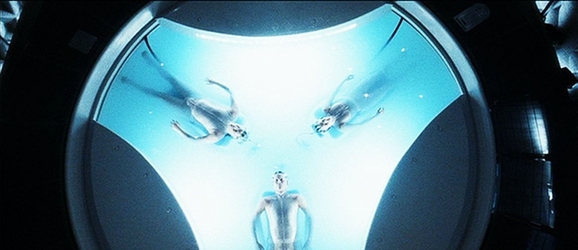(Minority) Report Shows Brain Scans May Identify Repeat Criminals
This article is more than 2 years old

It’s both humbling and disconcerting to know that while I think I’m telling my brain to stop wanting me to eat another peanut butter and bacon jam sandwich, my brain could have already told anyone listening that I’m an overeater and that I would probably do anything for another sandwich. I doubt I’d commit a crime, but maybe…
It turns out our brains may also play stool pigeon by ratting out which of us may be prone to repeated criminal behavior, as preliminary tests have shown, with results published in the Proceedings of the National Academy of Sciences. Kent Kiehl of the Mind Research Network in Albuquerque, New Mexico and a team of neuroscientists used functional magnetic resonance imaging (fMRI) to scan the brains of 96 prisoners just prior to getting out of jail. The scan focused on the anterior cingulate cortex (ACC), located at the front of the brain. It’s involved in executive functioning and some motor control, and so the test surveyed the prisoners as they made quick decisions while inhibiting impulsive reactions.
Four years later, Kiehl and his team concluded that even after other risk factors were accounted for, it appeared that men with lower ACC activity had a 2.6-fold higher rate of rearrest in all criminal activity, and a 4.3-fold higher rate in strictly non-violent crimes. That’s a pretty solid connection, but of course it’s anything but conclusive. As Kiehl plainly states, “This isn’t ready for prime time.”
The ACC “is one of the most frequently activated areas in the human brain across all kinds of tasks and psychological states,” explains Tor Wager, a neuroscientist at the University of Colorado at Boulder. Caffeine, vascular problems, low motivation, and plenty of other causes could have accounted for the low ACC readings.
“A treatment of [these clinical neuro-imaging studies] that is either too glibly enthusiastic or over-critical,” Wager says, “will be damaging for this emerging science in the long run.”
So we’re not going to cheer about it and we’re not going to talk shit about it. We’re just putting it out there. And until the matter sees any concrete conclusions, you can find us committing virtual crimes in violent video games, because indecisive studies work better in pairs.












